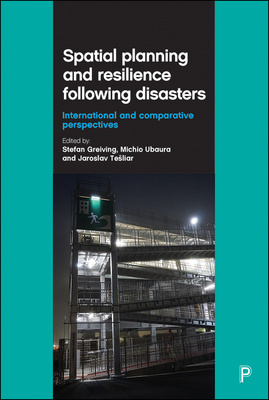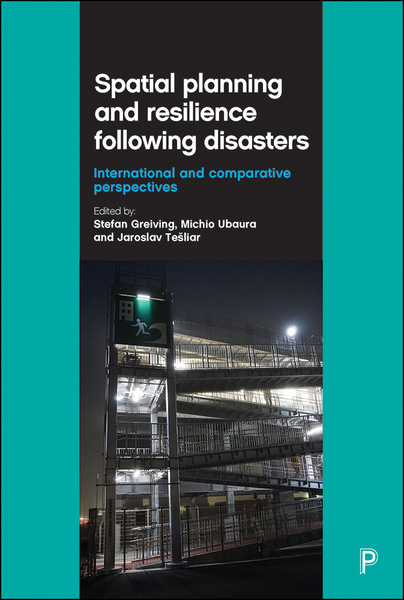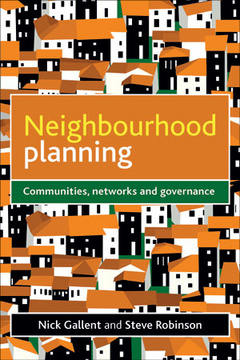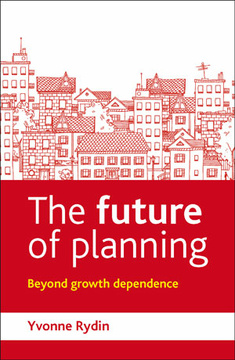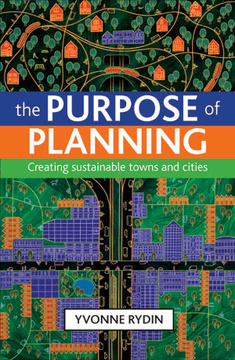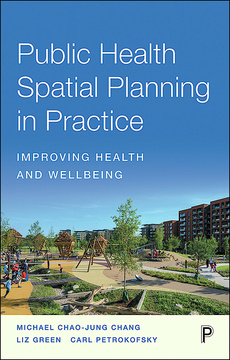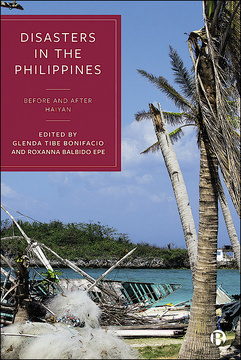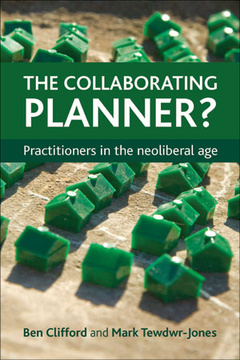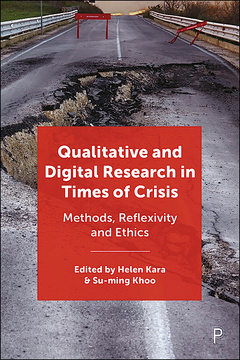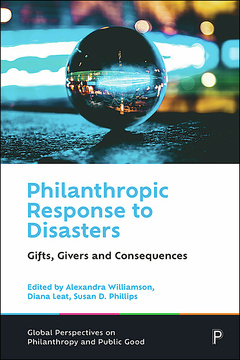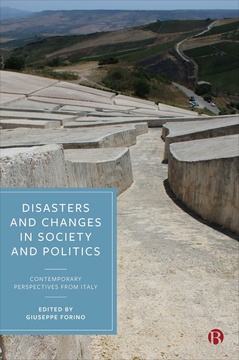Spatial Planning and Resilience Following Disasters
International and Comparative Perspectives
Edited by Stefan Greiving, Michio Ubaura and Jaroslav Tešliar
Published
Dec 6, 2017Page count
352 pagesISBN
978-1447323594Dimensions
234 x 156 mmImprint
Policy PressPublished
Jul 29, 2016Page count
352 pagesISBN
978-1447323587Dimensions
234 x 156 mmImprint
Policy PressPublished
Jul 29, 2016Page count
352 pagesISBN
978-1447323624Imprint
Policy PressPublished
Jul 29, 2016Page count
352 pagesISBN
978-1447323631Imprint
Policy PressPopulation shifts and an increase in the number of natural (and man-made) disasters are having a profound effect on urban and rural habitats globally. This book brings together for the first time the experiences and knowledge of international contributors from academia, research, policy and practice to discuss the role of spatial planning after significant disasters. It highlights on-going efforts to improve spatial resilience across the globe and predicts future trends. Comparisons from five countries including Japan, the US, Indonesia, Slovakia and Germany, highlight the influence of significant disasters on spatial planning and spatial resiliency under different legal-administrative and cultural frameworks.
“In times of growing awareness on the crucial role of spatial planning in disaster recovery and resilience building this book meets the challenge outstandingly by bringing together prominent contributors from academia, research and policy-making to judge remediation efforts after calamities with an indelible imprint on human history." Sapountzaki Kalliopi, Harokopio University, Greece
Stefan Greiving is Executive Director of the Institute of Spatial Planning at TU Dortmund University. His main interests are in the areas of disaster risk management, adaptation to climate change and spatial planning.
Michio Ubaura is Associate Professor in the Department of Architecture and Building Science at Tohoku University. His specialty is spatial planning.
Jaroslav Tesliar is Director of the Agency for the Support of Regional Development Kosice, Slovakia. His interest is regional development in general with focus on climate change.
Introduction: Disaster response and spatial planning – key challenges and strategies ~ Stefan Greiving;
PART A;
I.Japan;
Disaster risk management and land use in Japan: In geography vulnerable to water-related disasters ~ Kanako Iuchi;
Spatial Planning Control for Housing Recovery after Great East Japan Earthquake ~ Tamiyo Kondo;
Reconstruction plans and planning processes after the Great East Japan Earthquake ~ Michio Ubaura;
II.Indonesia;
Land use politics after Indian Ocean Tsunami 2004 ~ Togu Pardede;
Coastal resilience in Indonesia: From plan to implementation ~ Surtiari, G.A.K ., Garschagen, M ., Birkmann , J., Setiadi, N ., Manuati, Y;
III.USA;
Planning for resilience in the New York metro region after Superstorm Sandy ~ Donovan Finn;
IV.Slovakia;
Spatial planning focusing on risk management in Slovakia ~ Alena Kučeravcová, Jan Dzurdženík;
Enhancement of flood management and flood-protection planning in Eastern Slovakia ~ Jozef Šuľak, Jaroslav Tešliar;
V.Germany;
Flood risk management by spatial planning ~ Stefan Greiving, Nadine Mägdefrau;
Major-accident hazards in spatial planning ~ Nadine Mägdefrau;
Cross-Analysis of Part A ~ Stefan Greiving, Nadine Mägdefrau, Teresa Sprague;
PART B;
Planning systems for risk reduction and issues in pre-disaster implementation ~ Kanako Iuchi;
Efforts and limitations in spatial transformation after disasters ~ Michio Ubaur;
Role of coordination in building spatial resilience after disasters ~ Alena Kučeravcová, Jozef Šuľak, Jaroslav Tešliar, Ján Dzurdženík;
Residents’ participation in rebuilding more resilient space ~ Nadine Mägdefrau, Teresa Sprague;
Spatial planning and uncertainties associated with future disasters ~ Stefan Greiving;
Conclusion: Change-proof cities and regions – an integrated concept for tackling key challenges for spatial development ~ Stefan Greiving, Kanako Iuchi, Jaroslav Tesliar, Michio Ubaura.







